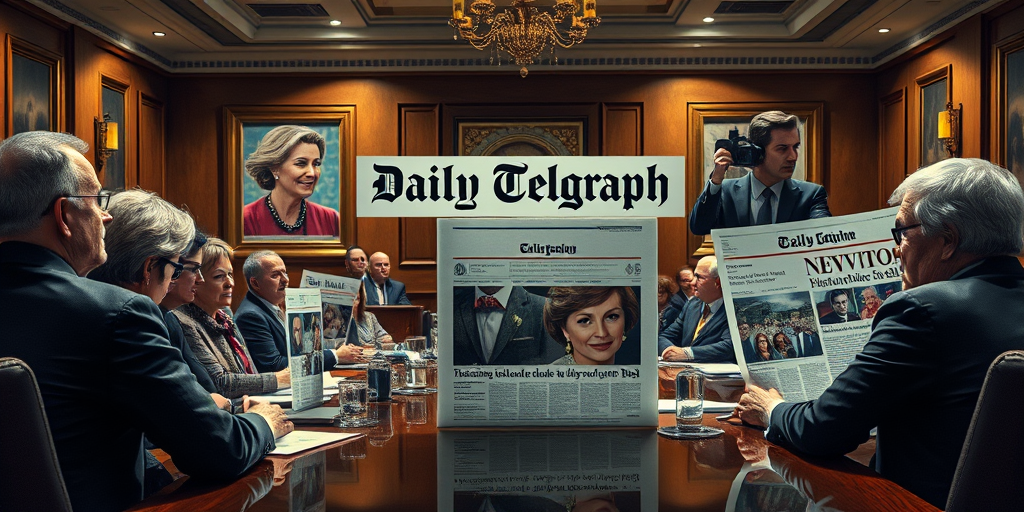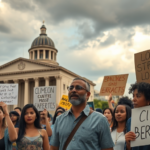RedBird Capital to Acquire Britain’s Daily Telegraph in Landmark Deal
The storied British newspaper, The Daily Telegraph, known for its historical ties to the Conservative Party, is set to change ownership yet again. RedBird Capital Partners, an American private equity firm with substantial interests in sports, media, and entertainment, has announced plans to purchase Telegraph Media Group for a sum of approximately £500 million ($675 million). This acquisition marks the culmination of a prolonged and contentious ownership saga, highlighting ongoing debates over media ownership and the influence of foreign investments in the UK media landscape.
RedBird’s Steady Climb in Media Ownership
RedBird Capital’s journey to acquire The Daily Telegraph has been anything but smooth. The firm previously gained control of The newspaper through a joint venture with International Media Investments (IMI), a fund chaired by an Abu Dhabi royal family member. The joint acquisition plan, however, faced significant hurdles, including stern opposition from the British government. Concerns about foreign state ownership in domestic media led to the plan being blocked in 2023.
In a decisive move in 2024, the British Conservative-led government enacted legislation prohibiting foreign state investors from owning British newspapers outright. This law compelled RedBird IMI to explore other avenues for maintaining their stake in The Telegraph, ultimately leading to RedBird Capital’s direct acquisition.
The Local Perspective: Resonance Beyond Borders
Although the acquisition may seem distant, the implications of The Telegraph’s ownership change resonate beyond Britain. Global media ownership patterns impact how news is disseminated, potentially influencing journalistic integrity and editorial independence. In the United States, the local impact of foreign holdings in prominent media has often sparked debates around transparency and the influence of non-traditional stakeholders in shaping public discourse.
Jim Henderson, a media analyst based in New York, commented on the broader ramifications for media consumers worldwide. “The shift in ownership of a globally recognized newspaper like The Telegraph embodies the ongoing changes in how media conglomerates operate. It raises questions about the control of information, particularly when ownership crosses national lines,” he noted.
Historical Context: A Legacy Newspaper in Transition
Founded in 1855, The Daily Telegraph is one of Britain’s oldest newspapers, often referred to as the “Torygraph” due to its conservative leanings. Throughout its substantial history, the newspaper has served as a critical platform for conservative narratives, significantly influencing British politics and public opinion.
The saga of its ownership echoes broader historical trends where control of media assets often becomes a focal point of political intrigue and economic maneuvering. For local audiences, these developments offer a lens through which the dynamics of power and information control can be better understood, particularly in a rapidly globalizing world.
Navigating Future Implications
As RedBird Capital takes the reins, the editorial direction and journalistic stance of The Telegraph remain subject to scrutiny. Media experts and critics alike speculate on how the new ownership might influence the publication’s content and editorial policies. While private equity firms generally focus on profitability, maintaining the trust and readership loyalty of a historically conservative audience will likely guide strategic decisions.
Dr. Sarah Greene, a journalism professor at UCLA, emphasized the potential challenges, “Striking a balance between commercial interests and journalistic integrity will be vital for RedBird. Any perceived shift in the newspaper’s core principles could lead to significant repercussions for its readership base.”
Community Engagement: The Role of Public Participation
Amid these transformative events, fostering an informed public remains paramount. For American communities, including residents of major metropolitan areas like New York and Los Angeles, the evolving narrative of media ownership serves as a reminder of the role of public engagement and media literacy in ensuring a diverse and reliable press ecosystem.
Local initiatives, such as media literacy programs and public forums, are crucial in equipping residents with the tools to critically analyze media content. Community-centric platforms, like Woke news, also play a pivotal role in amplifying diverse voices and providing independent commentary that reflects the lived experiences and concerns of ordinary citizens.
Looking Ahead: Ensuring Balanced Coverage
The sale of The Daily Telegraph to RedBird Capital is not just a business transaction; it’s a narrative about media control, political influence, and the global economy’s intertwining with local journalism integrity. For those seeking to understand this shift, a balanced approach to media consumption and support for independent journalism is essential.
For individuals interested in learning more about media ownership trends and their broader societal implications, local libraries and university courses offer valuable resources. In addition, media watchdog groups continue to provide oversight, ensuring that the principles of transparency and accountability are upheld across the digital and journalistic landscapes.
As the story develops, the need for vigilant, well-informed citizens remains as critical as ever, underscoring the ongoing relevance of community engagement and critical media literacy in navigating the complex world of modern journalism.







